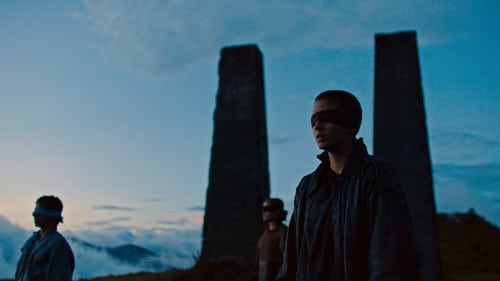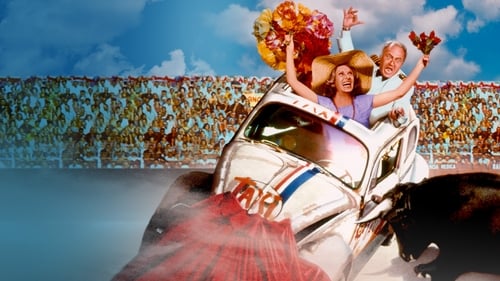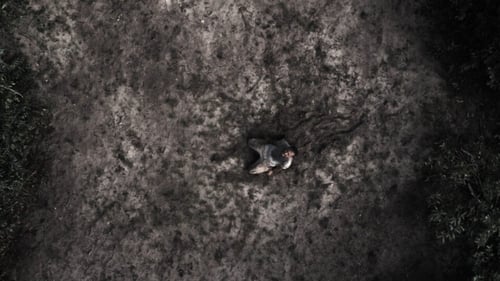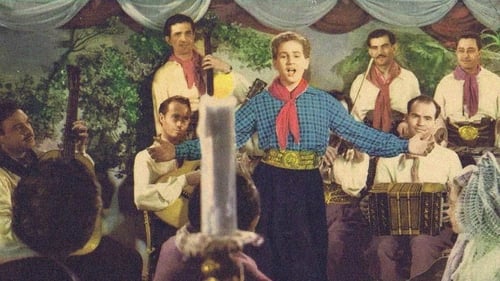Last Chapter: Goodbye Nicaragua (2011)
장르 : 다큐멘터리
상영시간 : 1시간 42분
연출 : Peter Torbiörnsson
시놉시스
A film about guilt and blood-stained ideologies. A bomb explodes during a press conference in the jungle between Nicaragua and Costa Rica, killing more than 20 journalists. The Swedish journalist, Peter Torbiörnsson tries to discover who is behind this terrorist attack and end up discovering that his old friends are the ones who took his colleagues’ lives.

불법 무장 단체 사단의 8명의 청소년들과 그들의 인질이 콜롬비아 산악 지대에 숨어 있다. 그들의 귀중한 젖소 '샤키라'를 우연히 죽이게 된 사건은 생존을 위한 전쟁을 시작시킨다.

The adorable little VW helps its owners break up a counterfeiting ring in Mexico.

불치병을 앓고 있는 그녀. 치유법을 찾기 위해 단짝 친구와 함께 남미로 떠났다. 진정한 치유란 무엇일까. 또 유한한 인간의 시간 속에서 잘 살아낸 인생이란 어떤 인생일까. 우리 삶의 중요한 가치를 돌아보게 하는 휴먼 다큐멘터리.

A story of destinies joined by Guatemala's past, and how a documentary film intertwined with a nation's turbulent history emerges as an active player in the present.

Merenguito, a little piñata boy, wakes up on a school table after being put together by a group of primary school children. Soon they discover his gift: dispensing candy at will. When the children become absorbed by their greed for candy, Merenguito finds comfort in his friendship with Bruno, a gentle child outcast from his peers due to his delicate health condition. Chaos soon erupts and Merenguito becomes a victim of merciless bullying that spirals him into a choice with terrible consequences.

Tomás, a birdwatcher and photographer, tries to give his career a push by taking an impossible photograph: an albino bird never seen outside captivity. To this end, he drags his wife and daughter to the Amazonian forest.

What starts as a desire to experience nature more intimately develops into a relatable conversation on alternative pathways through life. Two friends go on a two-year road trip through Latin America. Presenting an insight into long term travel and how engaging in new cultures and environments can help widen our perspective and deepen our understanding of the world we live in. Pacifico forms a discussion around the pros and cons of living in the moment; Showing how slowing down and observing the world mindfully can aid in gaining perspective and broaden an understanding of what is important in life.

In 1992, on a marginalized street of Lima (Peru), two teenagers - Gregorio, and Juliana struggle to find a substitute or an alternative to the terrorism movement which surrounds them.

A film about guilt and blood-stained ideologies. A bomb explodes during a press conference in the jungle between Nicaragua and Costa Rica, killing more than 20 journalists. The Swedish journalist, Peter Torbiörnsson tries to discover who is behind this terrorist attack and end up discovering that his old friends are the ones who took his colleagues’ lives.

This documentary traces the history of U.S. relations with Latin America and draws strong links to America's current immigration crisis. Decaying economies in much of Latin America are viewed as the result of ill-conceived U.S. policies.

An American tourist in South America finds love and unexpected trouble.

In 1973, eleven year old Miguelito was discovered singing in the San Juan airport by the legendary New York record producer Harvey Averne. Within the year, he went from the slums of Manuel A Perez, to recording an album with some of the finest salsa musicians of the time to finally performing with Eddie Palmieri at Madison Square Garden in front of 20,000 people. Throughout Latin America his songs ‘Payaso’ and ‘Canto a Borinquen’ had become cult hits. And then he simply disappeared...

Latvian artist Miķelis Fišers, one of the brightest artists of his generation, leaves everything to go to Latin America to find inspiration for his creative work and disappears. His friend, film director Mārtiņš Grauds decides to search for him. The film reveals a moment of artistic creation. The filming crew has been looking for the artist in Peru, Mexico, Bolivia, Finland, Italy and Latvia.

The Punta de Rieles prison was where most female political prisoners were incarcerated during the dictatorship in Uruguay. The way up to the building led through “the meadow” where there were animals grazing, and the prison itself was surrounded with flowers. The place seemed eminently liveable, almost comfortable, and at first sight there was no sign of the silent struggle going on behind those walls. This documentary is an attempt to reconstruct life at the prison through the testimony of some of the hundreds of women who were there and who resisted the military regime's attempts to grind them down and destroy them.

A young film director returns to Venezuela, inspired to make a film based on his father's life in the Amazon jungle (La Fortaleza, Jorge Thielen Armand). He casts Father to play himself. What starts as an act of love and ambition — filmmaking to more deeply understand the self, and the other — spirals into a process which confronts Father’s struggles with addiction and his life devoid of his son. EL FATHER PLAYS HIMSELF holds a steady lens to the way the act of cinema unearths, binds, heals and destroys.

Peru is a country of many contrasts. From the cold waters of the Coast over the 6000 m high Andes to the unique biodiversity of the Amazon Jungle. Peru isn't only Machu Picchu. It's much more.

Women workers stand up to the toxic flower industry in Colombia.

1989. Caracas is once again in danger with the comeback of the most dangerous drug lord of Venezuela, Disco Herrera; just months after "The Caracazo", a series of riots and massacres that left over 3000 casualties. Now Inspector Guerrero will investigate the strange coincidence with the help of maverick ex-cop Ryan of the DEA and destroy Herrera once and for all.

In the early ‘70s, in Argentina, a group of homosexuals decided to confront the status quo. With testimonies from its survivors as its denouncement source, Sex and Revolution brings back the voices of those who thought in order to be recognized as political actors in a society that wasn’t prepared for them.

In 1983 a group of 154 children aged 3 and 17 years old traveled alone from Europe to Montevideo. They were children of political exiles from Uruguay, who were unable to come back to their own country; they sent their kids to know their relatives and home country. That human sign, charged with a political message, took part in children’s identity development. Nowadays, six of them still remember that day, when a crowd received them singing all together “your parents will come back”.











